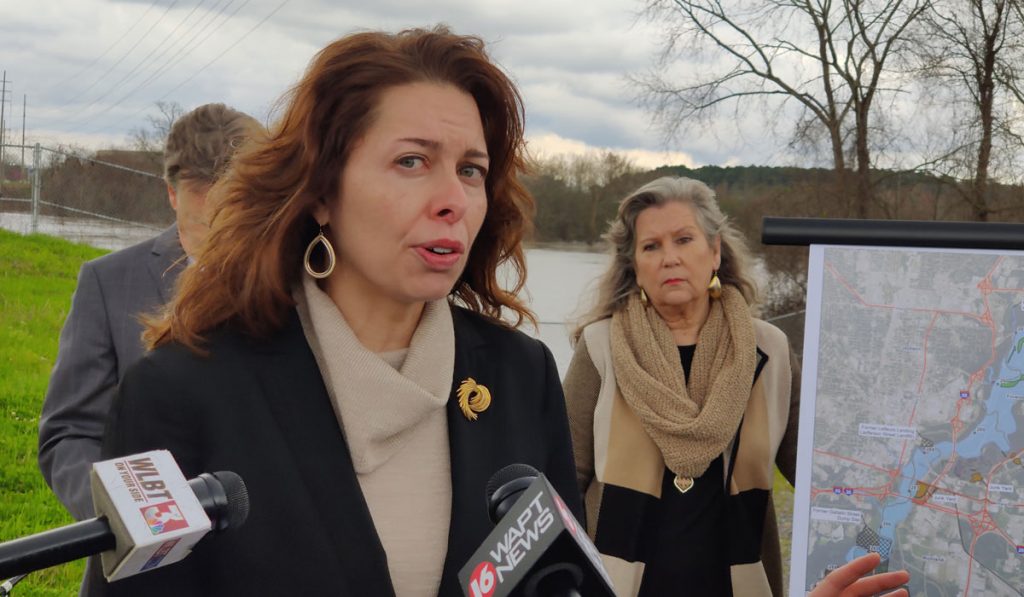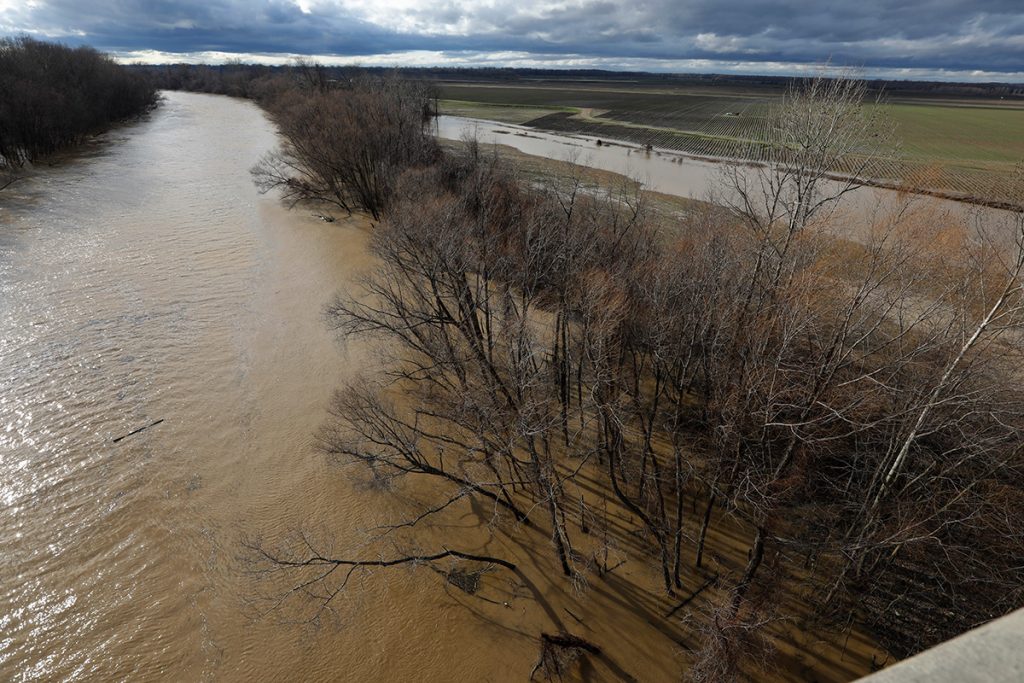The Environmental Protection Agency has restored a 2008 veto of the Yazoo Pumps Drainage Project, which the Trump administration overturned on its way out. This move blocks the project on the grounds that it would damage tens of thousands of acres of protected wetland and violate the Clean Water Act.
The proposed pumps would have extracted rainwater from the southern reaches of the Mississippi Delta in an attempt to reduce seasonal flooding, mostly in Sharkey and Issaquena counties. That flooding damages thousands of acres of farmland in the region, although critics of the plan have challenged the effectiveness of the pumps at preventing the flooding if built.
The new decision reverses the conclusion of a EPA letter from 2020, which concluded that changes to the Yazoo Pumps plan had avoided the prohibitions listed in the 2008 veto. Radhika Fox, assistant administrator of the EPA, explained the new decision in the new letter.
“The November 30, 2020 letter inaccurately describes the scope of EPA’s 2008 (Final Determination),” Fox wrote. “Based on a comprehensive evaluation of the 2008 FD and the associated record … the Agency has concluded that the 2020 Proposed Plan for the Yazoo Pumps Project is 2007 FSEIS Plan 5 and involves discharges into the geographic area covered by the FD.”

In essence, the EPA has determined that the 2020 Yazoo Pumps plan would still significantly harm protected wetlands. EPA Public Affairs Officer Robert Daguillard confirmed to the Mississippi Free Press in an interview that the decision halts the Yazoo Pumps project as currently devised, and would require the project’s backers to design a new draft that operates within the confines of the 2008 Final Determination.
An EPA press release following the restored veto asserted that the agency was open to a version of the Yazoo Pumps that did not violate the original veto. Included was a statement from EPA Administrator Michael S. Regan, who toured Jackson’s ailing water system and the Yazoo backwater just this week.
“EPA understands the urgency and is ready to work with its federal partners and local stakeholders on a transparent process to find a solution to flooding in the Yazoo backwater area that is both durable and environmentally protective,” it stated.
‘17% Is Not Flood Relief’
The plan for the Yazoo Backwater Pumps dates back to 1941—one of the many flood-mitigation projects following the devastating Great Mississippi Flood of 1927. The project would construct one of the world’s largest pumping plants and displace 14,000 cubic feet of water per second when active.
Numerous environmental groups have challenged the Yazoo Pumps projects for decades, based on the assertion that the project would not significantly reduce flooding, would help a limited pool of residents and would damage enormous swathes of natural habitats.
Jill Mastrototaro, policy director for Audubon Mississippi, is one of the environmentalists who has fought back against the Yazoo Pumps in their current iteration. Mastrototaro told the Mississippi Free Press in a Wednesday interview that the 2020 plan for the Yazoo Pumps was, as the EPA concluded, a rehash of a previously vetoed proposal.

“They would still pump the same area of the backwater in the same volume—14,000 cubic feet per second. They’d impact the same area that was protected by the 2008 veto,” she said. And the benefits, Mastrotaro added, would be slight.
“The (U.S. Army Corps of Engineers) revealed that 83% of the backwater area that was flooded during the 2019 flood would still continue to be underwater, even with the pumps,” she said. “The pumps are not a solution to flooding in the backwater. It’s a cruel hoax that we think is perpetrated on the backwater community.”
The region suffers the worst flooding in the early spring, when the northern lengths of the Mississippi River are subject to snow melt and heavy rains. When the Mississippi runs too high, the Steele Bayou gates at the bottom of Issaquena are shuttered. Roughly a million acres north of that point flood, damaging farmland and sometimes threatening the lives of residents.
“Seventeen percent of flood relief is not flood relief. Leaving 83% of the backwater underwater is not a solution,” Mastrototaro said.
But with residents at risk, and communities that have pinned their futures on the promise of an intervention in worsening floods, what could the solution be? “It’s a sensitive situation,” Mastrototaro acknowledged. “We want to ensure that all options are on the table.”
“There are quite a few federal programs that already exist and have money behind them,” she said. “The Federal Emergency Management Agency, Department of Housing and Urban Development, and U.S. Department of Agriculture can provide real relief for people, their property and livelihoods,”
Part of the solution, in the eyes of Mastrototaro and others who doubt the ability of the pumps to significantly alter the floodscape of the Yazoo Backwater, involves acknowledging that the Yazoo Backwater is going to flood, rather than attempting to turn back the annual swells of water.
“(Residents can) get paid to restore wetlands on their farmland,” she said. “We can elevate people’s homes. We can build strategic elevation corridors for transportation in areas that experience flooding regularly. There’s programs to help people move out of harm’s way.”
“It’s about recognizing that there needs to be a transition opportunity for residents in the area,” Mastrototaro said.
‘The Right Thing For The People’
After the restored veto, the response from high-profile backers of the Yazoo Pumps was swift.

Sen. Cindy Hyde-Smith, R-Miss., released a statement decrying the decision to enforce the 2008 veto. “This is an absolutely terrible day for the people who live in the Mississippi Delta and an even sadder day for the country when an agency like the EPA refuses to do the right thing for the people,” Hyde-Smith wrote.
The senator attacked Rep. Bennie Thompson, D-Miss., for his decision to write a letter to the EPA asking for an investigation of the 2020 decision. The same day, Thompson responded.
“Today, Senator Hyde-Smith accused me of advocating for the Yazoo Pumps Project in Mississippi while not supporting it in Washington … the senator is wrong. I have gone on record in support of this project, and it is documented. Now, she has the burden to produce a list of the people I have spoken to against the pumps project. If she cannot produce the list, it is clear she is not telling the truth.”
Gov. Tate Reeves blasted the decision on social media shortly after the veto was restored. “It seems like every day, the Biden Administration finds a new way to fail Mississippians,” Reeves wrote. “The Trump Administration’s Environmental Protection Agency realized the importance of protecting the Mississippi Delta and its residents when they allowed this project to proceed. Instead, President Biden is choosing to put radical ‘environmentalists’ ahead of human lives and livelihoods. My administration will fight this decision and stop at nothing until this project gets done.”
While attacking the decision may be an effective political move, the project will require the assent of the EPA, either through yet another reversal under a future administration, or a plan that avoids harming the wetlands protected in the 2008 veto.










